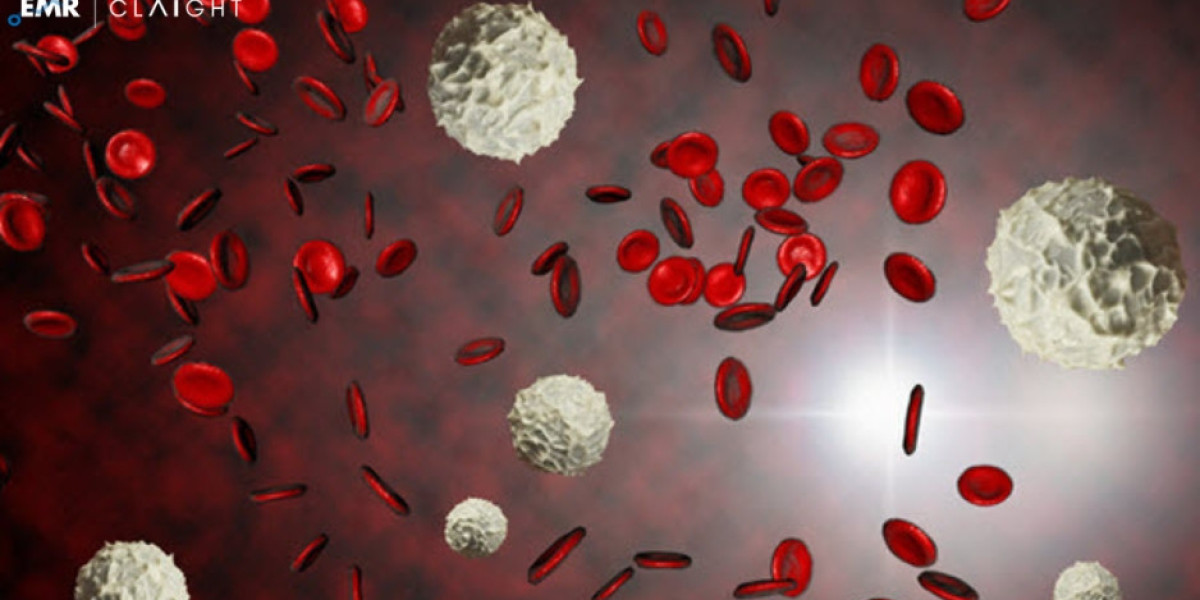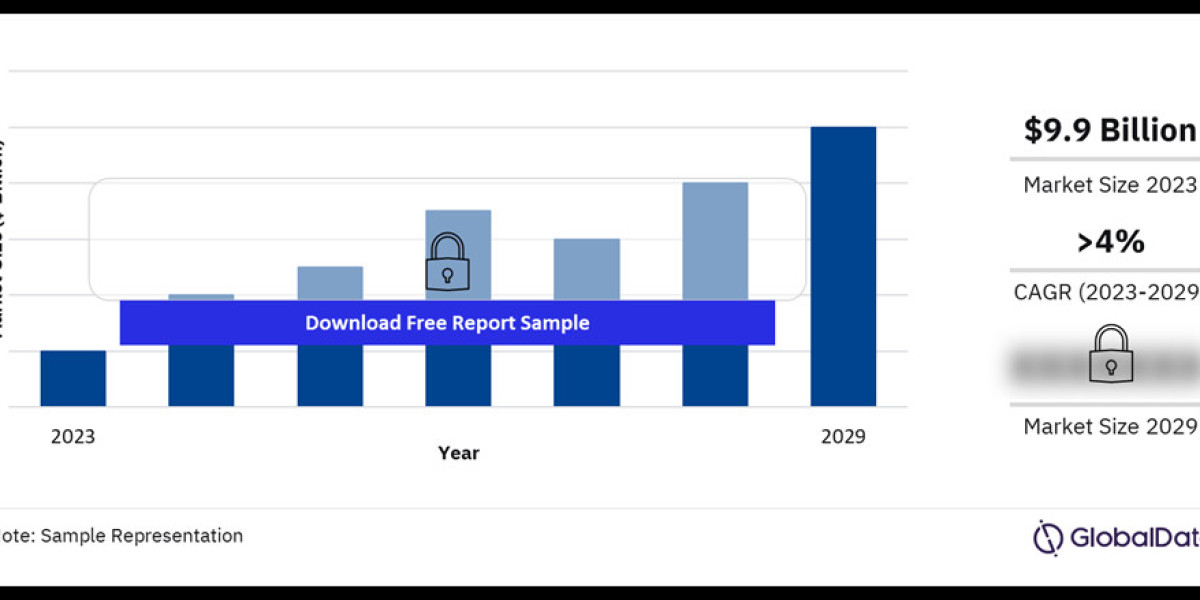The North America stem cell assay market has witnessed significant growth in recent years, with the market size valued at USD 7.1 billion in 2023. This growth is driven by the rising investment in stem cell research and the increasing applications of stem cell assays across diverse industries, including healthcare, pharmaceuticals, and biotechnology. As the demand for advanced stem cell therapies and diagnostic tools escalates, the market is poised for further expansion, with projections estimating a CAGR of 10.08% during the forecast period from 2024 to 2032. The market value is anticipated to rise from USD 7.8 billion in 2024 to USD 16.9 billion by 2032.
In this article, we will explore the various drivers, trends, challenges, and opportunities in the North American stem cell assay market. Additionally, we will highlight the key players in the market, explore frequently asked questions (FAQs), and provide insights into the future of this rapidly evolving industry.
What is a Stem Cell Assay?
A stem cell assay is a laboratory test used to assess and measure various properties of stem cells. These assays are vital for studying stem cell biology, identifying stem cell characteristics, and testing the functionality of stem cells in regenerative medicine. Stem cell assays help researchers understand how stem cells behave in different environments, their differentiation potential, and their capacity for self-renewal. These tests are critical in evaluating stem cell therapies and advancing drug development by identifying the most promising candidates for clinical trials.
Get a Free Sample Report with Table of Contents : https://www.expertmarketresearch.com/reports/north-america-stem-cell-assay-market/requestsample
Stem cell assays are used in various applications, including:
- Stem cell identification and characterization
- Stem cell differentiation studies
- Toxicity screening and drug testing
- Regenerative medicine and tissue engineering
Factors Driving the Growth of the North America Stem Cell Assay Market
Several factors contribute to the robust growth of the North America stem cell assay market:
Increased Investment in Stem Cell Research: The United States and Canada are leading the charge in stem cell research, with significant investments being made by both government bodies and private organisations. The development of new stem cell-based therapies for a wide range of diseases, including neurological disorders, cardiovascular diseases, and cancer, is a major growth driver.
Rising Demand for Regenerative Medicine: Stem cells have immense potential in regenerative medicine, offering new treatment possibilities for conditions such as arthritis, heart disease, and spinal cord injuries. As the demand for non-invasive, tissue-regenerating therapies grows, so does the need for accurate stem cell assays to evaluate their efficacy.
Technological Advancements in Stem Cell Assays: New innovations in stem cell assay technologies, including advanced imaging techniques, automation, and high-throughput screening methods, have significantly improved the accuracy, speed, and scalability of stem cell assays. These advancements have made it easier to conduct large-scale studies, propelling market growth.
Aging Population and Rising Chronic Diseases: With an aging population and an increasing prevalence of chronic diseases, there is a growing need for innovative treatments. Stem cell therapies, which can potentially cure or manage conditions that are currently difficult to treat, are seeing increased demand.
Regulatory Support and Policies: In North America, regulatory bodies like the FDA (U.S. Food and Drug Administration) and Health Canada are providing clear guidelines for stem cell research and clinical trials. This regulatory clarity encourages both public and private investment in stem cell technologies, further boosting the market.
Market Trends in the North America Stem Cell Assay Market
Personalized Medicine: Personalized medicine, where treatments are tailored to individual patients based on their genetic makeup and specific disease characteristics, is gaining popularity. Stem cell assays play a pivotal role in this field by helping researchers identify the most effective stem cell-based treatments for individual patients.
High-Throughput Screening: High-throughput screening (HTS) is a key trend in the stem cell assay market. HTS involves testing thousands of compounds simultaneously, making it easier to identify promising candidates for drug development and stem cell therapy. This technology is expected to drive market growth due to its ability to accelerate research and reduce costs.
Cell-Based Assays: The shift towards cell-based assays from traditional biochemical assays is another significant trend. Cell-based assays offer a more accurate representation of biological processes, making them indispensable in stem cell research. This trend is expected to continue as researchers increasingly rely on these assays for stem cell characterization and drug screening.
Stem Cell Banking: Stem cell banking, or the collection and storage of stem cells for future use, is becoming more common, especially for treating diseases like leukemia, genetic disorders, and neurological conditions. Stem cell assays are integral to ensuring the quality and viability of stem cells stored in these banks.
Challenges Facing the North America Stem Cell Assay Market
Ethical Concerns: The use of stem cells, particularly embryonic stem cells, has raised ethical concerns. These concerns may hinder the development of stem cell-based therapies and affect market growth. Stricter regulations and public opposition to certain types of stem cell research could impact the future of this market.
High Costs of Stem Cell Assays: Despite the technological advancements in stem cell assays, the cost of developing and conducting these assays can be prohibitively high. This presents a challenge, especially for smaller research labs and institutions, limiting access to these advanced technologies.
Lack of Standardisation: There is a lack of standardisation in stem cell assays, leading to variability in results. Standardised protocols and quality control measures are essential to ensure consistency and reproducibility in research. The absence of clear guidelines may limit the growth of the market.
Opportunities in the North America Stem Cell Assay Market
Emerging Markets: While North America is currently the dominant market for stem cell assays, there are significant opportunities in emerging markets, such as Asia-Pacific and Latin America, where the demand for stem cell therapies and research is growing. This offers companies in North America a chance to expand their reach.
Collaborations and Partnerships: Collaborations between pharmaceutical companies, biotechnology firms, and academic institutions offer opportunities for growth in stem cell research and assay development. These partnerships can accelerate product development and help overcome market challenges.
Government Funding: The increasing availability of government funding for stem cell research is a significant opportunity. Governments in North America are providing grants and incentives for the development of stem cell-based therapies, further driving market growth.
Key Players in the North America Stem Cell Assay Market
Several key players are shaping the future of the North America stem cell assay market. These companies are leading the development of innovative products, technologies, and services in stem cell research and applications.
Thermo Fisher Scientific: Based in the United States, Thermo Fisher Scientific is a global leader in laboratory products and services. The company offers a wide range of stem cell assay tools and technologies, including reagents, culture media, and analysis instruments, which are crucial for stem cell research.
Lonza Group: A Swiss multinational company, Lonza Group provides comprehensive stem cell culture products, assay kits, and reagents for research and clinical applications. The company is a major player in the regenerative medicine and cell therapy markets in North America.
Merck KGaA: Merck KGaA, Darmstadt, Germany, is a leading provider of lab equipment, reagents, and tools for stem cell research. The company’s portfolio includes stem cell culture media, differentiation kits, and assay systems, making it a key player in the North American market.
Cell Biolabs, Inc.: A biotechnology company based in San Diego, Cell Biolabs, Inc. provides innovative stem cell research assays, kits, and tools. The company focuses on creating high-quality assays that enable researchers to study stem cell differentiation, proliferation, and gene expression.
Stemcell Technologies: Stemcell Technologies, based in Vancouver, Canada, is a leading supplier of cell culture products and reagents used in stem cell research. Their products support stem cell growth, differentiation, and functional assays, making them an essential player in the market.
FAQs
Q1: What are stem cell assays used for?
Stem cell assays are used to study and evaluate stem cell characteristics such as differentiation potential, proliferation rates, and gene expression. These assays are vital for advancing stem cell therapies, drug screening, and regenerative medicine.
Q2: What is driving the growth of the North American stem cell assay market?
The growth is driven by increased investment in stem cell research, advancements in assay technologies, the rising demand for regenerative medicine, and the need for effective treatments for chronic diseases.
Q3: Which companies are leading the North American stem cell assay market?
Key players include Thermo Fisher Scientific, Lonza Group, Merck KGaA, Cell Biolabs, and Stemcell Technologies.
Q4: What challenges does the stem cell assay market face?
Challenges include ethical concerns regarding stem cell use, high costs of assays, and the lack of standardisation in stem cell testing protocols.
Q5: What are the future opportunities in the stem cell assay market?
Emerging markets, collaborations and partnerships, and government funding for stem cell research present significant growth opportunities for the North American stem cell assay market.









